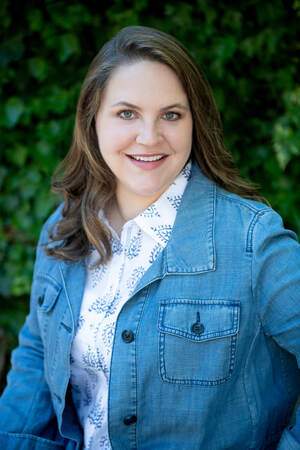|
The extra, magical chromosome was intricately wound through my son’s body more
than a trillion times. It was not put there by accident. It was not forgotten. The extra chromosome is intentional. Andrew is one year old and has Down syndrome. Over the past 12 months, I have witnessed his strength, resilience and beautiful smile. He brings joy to me, my husband, and his older siblings. He is the child that I dreamed of. I am in love with my son and his extra chromosome. The month of October is Down Syndrome Awareness Month. This is the time of year in which one will notice more information about Down syndrome through the media and other organizations. This is the month that we celebrate people with Down syndrome! Why do I refer to this extra chromosome as magical? According to the Merriam-Webster Dictionary, “magic” is defined as “an extraordinary power or influence seemingly from a supernatural source.” The full or partial extra chromosome provides “extraordinary power” in those living with Down syndrome. John Franklin Stephens is a man living with Down syndrome whose speech to the United Nations went viral. In it, he tells his audience that the extra chromosome is a “blueprint for medical research in areas that include soft tissue cancer, heart disease, immune system disorders, and Alzheimer’s Disease.” But the extra chromosome is so much more. Those living with Down syndrome experience the same emotions as their counterparts; they can be happy, sad, frustrated and scared. However, they are known for radiating joy. People who have Down syndrome can be married, live independently, attend school with their counterparts, be employed in meaningful jobs, and can contribute to their communities. Recently, we have seen the first Gerber baby with Down syndrome, the first D.C. lobbyist with Down syndrome and there have been many models. According to the National Down Syndrome Society (NDSS,) there are three types of Down syndrome: trisomy accounts for 95% of cases, translocation accounts for 4% and mosaicism accounts for 1%. Approximately one in every 700 babies in the United States is born with Down syndrome- about 6,000 each year. Many people have told me that my son is lucky to have me as his mother. I feel quite the opposite; I’m the lucky one. He has greatly enriched the lives of his family members and our friends. Over the past year, we have had health challenges with Andrew. He had surgery for Hirschsprung’s disease when he was 15 days old and was hospitalized when he was six months old for complications with the flu. For the past year, I have driven him, almost daily, to many doctors’ appointments. He has a speech therapist and a physical therapist in our home every week. Managing his appointments, healthcare and development has been exhausting. But I wouldn’t trade it for the world. His toothless smile and his big blue eyes fill my heart with love and renewal to face the obstacles and to rejoice in his triumphs. His personality is full of love, silliness, energy and compassion. Looking back over the past year, I am thankful for how far we have come. At the time that John Franklin Stephens was preparing his speech for the United Nations, I was learning that I would receive a prenatal diagnosis of Down syndrome. I was overwhelmed and confused. So, I turned to Google. I googled “Down syndrome” and stumbled upon Mr. Stephens speech to the U.N. From that point on, the confusion left, and I was inspired. I continue to be inspired every day. October may be Down Syndrome Awareness Month, but in my world, we are aware of Down syndrome every day. Fortunately, there is a plethora of resources available for adults and children living with Down syndrome. The Global Down Syndrome Foundation is a non-profit organization that is “dedicated to significantly improving the lives of people with Down syndrome through research, medical care, education and advocacy.” It supports the Linda Crnic Institute for Down Syndrome which is dedicated solely to researching Down syndrome. Dr. Fran Hickey is with the Sie Center for Down Syndrome, located in Denver, CO. He is one of the leading pediatricians for children with Down syndrome and sees patients from around the world. Another dynamic resource is the National Down Syndrome Society (NDSS.) The NDSS works to bring public awareness to society about Down syndrome. There are many local support groups, or Down Syndrome Associations, across the country. These associations provide playgroups, life skills classes, education, and resources. Everybody walks along their own path of life. Those living with Down syndrome bring their magical chromosome with them on their journeys. They are able to be contribute much to their communities. Their magical smiles and compassion can, and will, change the world. Comments are closed.
|
Archives
December 2023
|


 RSS Feed
RSS Feed